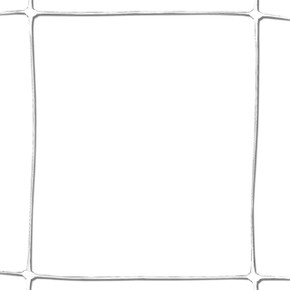

Tenax hortonova is the polypropylene mesh that has revolutionized the climbing vegetable cultivation system. It has replaced metal meshes, iron trellises and perishable materials, like bamboo reeds or wood, traditionally used to create support and separation frames.
It is produced from top quality polypropylene and made through a unique dual stretching and extrusion process that ensures optimum strength and maximum lifespan. Light and easy to install, uv treated, resistant to bacteria, chemicals, and mold, it is ideal for growing cut flowers and climbing vegetables.
Install tenax hortonova polypropylene mesh vertically to grow climbing vegetables like peas, beans, tomatoes, cucumbers, peppers, eggplant, zucchini, and climbing pumpkins.
Tenax hortonova net has undergone an accelerated aging laboratory test. The test simulated two years of exposure to an average solar radiation of 5,500 mj (megajoule)/m², the equivalent to climate conditions in the mediterranean basin. The results were extraordinary: transverse threads maintained 85% of their initial tensile strength, while longitudinal threads performed even better, showing no decay.
Tenax hortonova is the polypropylene mesh that has revolutionized the climbing vegetable cultivation system. It has replaced metal meshes, iron trellises and perishable materials, like bamboo reeds or wood, traditionally used to create support and separation frames.
It is produced from top quality polypropylene and made through a unique dual stretching and extrusion process that ensures optimum strength and maximum lifespan. Light and easy to install, uv treated, resistant to bacteria, chemicals, and mold, it is ideal for growing cut flowers and climbing vegetables.
Install tenax hortonova polypropylene mesh vertically to grow climbing vegetables like peas, beans, tomatoes, cucumbers, peppers, eggplant, zucchini, and climbing pumpkins.
Tenax hortonova net has undergone an accelerated aging laboratory test. The test simulated two years of exposure to an average solar radiation of 5,500 mj (megajoule)/m², the equivalent to climate conditions in the mediterranean basin. The results were extraordinary: transverse threads maintained 85% of their initial tensile strength, while longitudinal threads performed even better, showing no decay.